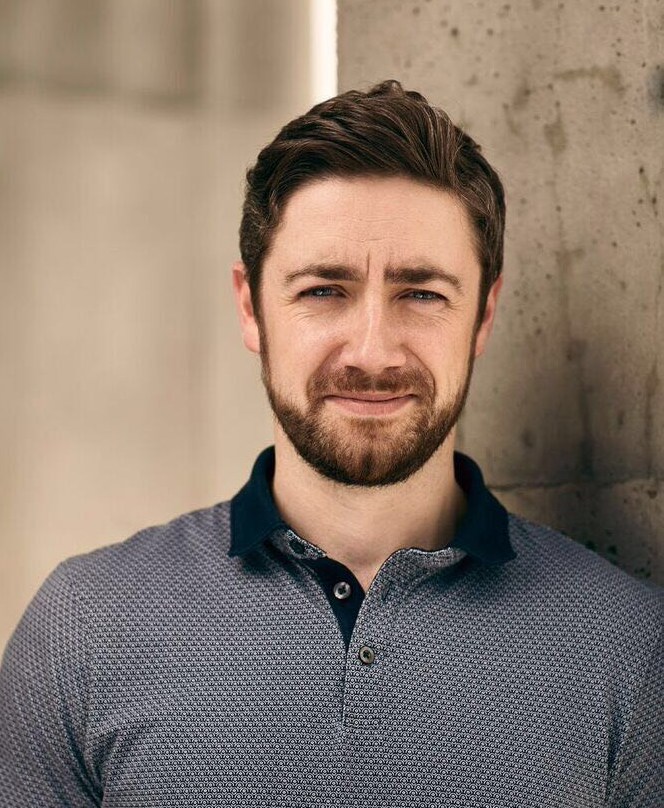Patrick Gunning – 2022 Feature Grant Recipient
 Patrick Gunning – University of Toronto, ON
Patrick Gunning – University of Toronto, ON
Project Title: “Development of Selective Small Molecule Inhibitors as Treatments for Medulloblastoma”
Description of Project:
Brain cancers are exceptionally challenging to treat with chemotherapeutics, partly because the brain is protected by a ‘blood-brain-barrier’. This barrier serves to protect the brain from potentially harmful substances, but it can also block drugs that would be helpful. Therefore, we are developing drugs that have specific properties that allow them to cross the blood-brain-barrier. We have been developing drugs that engage a new target in medulloblastoma, one of the most frequently occurring pediatric brain cancers. This target is called HDAC6, and we have developed drugs that have exquisite selectivity for this protein. For example, current drugs in the clinic for HDAC6 have 5-6 fold selectivity, whereas our lead candidates are 800-fold selective. They have also shown the potential to cross the blood-brain-barrier in mouse models. We are working to expand our current chemical library to develop first-in-class HDAC6 inhibitors for medulloblastoma.
What receiving this award means:
“Cancer treatment has undergone many advancements in the past decade to improve patient quality of life and to provide new and improved treatment strategies. However, there is still a lot of work to be done, with current treatment strategies succumbing to resistance, and other more rare cancers remaining undruggable. We are extremely grateful for the support from the Brain Tumor Foundation of Canada which will help accelerate and improve the progress towards novel, safer therapeutics, as well as to provide unique cancer research opportunities for our trainees. This project is focused on developing blood-brain-barrier permeable molecules to target medulloblastoma, an aggressive pediatric brain cancer. We hope to discover new therapies, perform cutting edge science, and inspire and foster the next generation of top-tier cancer researchers in Canada.”
Midpoint Report – January 2024
As a medicinal chemist, and having lost family to cancer, along with witnessing the side effects of traditional chemotherapy, a career designing molecules to more safely eradicate rare and untreatable cancers has been hugely motivating. There is nothing more rewarding than seeing molecules developed by trainees in my lab having impactful effects against relentless diseases and brain tumors. With the generous support from Brain Tumor Foundation of Canada, we have been working towards designing, synthesizing, and evaluating potent and precise molecules against a key protein that is involved in brain cancers. We have previously identified a lead molecule to advance through our program, and we have been carrying out additional organic synthesis and generated a larger library of new molecules. From our synthetic campaigns, we have evaluated our molecules for both potency and selectivity as a primary filter. The top performing compounds were advanced for a type of study called target engagement, where we are able to examine compounds in living neuronal cells (within a petri dish) and see if they are having an effect on our key targets. With the best compounds, we have also been using technique, similar to medical X-rays, to examine the three dimensional structure of the compounds bound to proteins. This provides us with atomic level resolution which helps us fine-tune our molecules. These studies have enabled us to identify specific areas on our molecules to iteratively optimize. We are now testing these new molecules in preclinical studies to examine their absorption and stability properties. We are extremely grateful to the continued support of Brain Tumor Foundation of Canada.